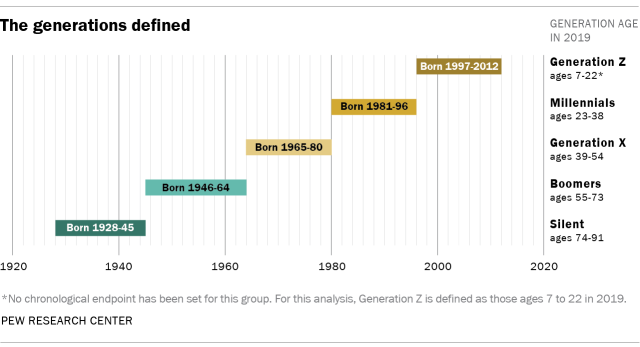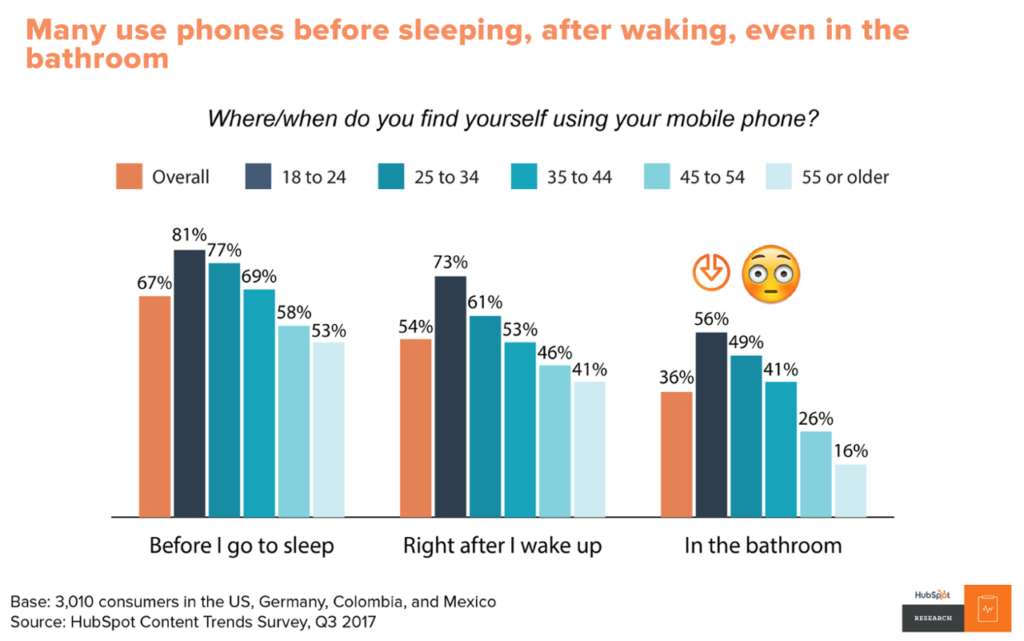
Generational Marketing
Generational Marketing takes into consideration groups of people born in the same period of time who share similar life experiences shaped by that particular time period and their marketing preferences.
To know as much as possible about a group of people and their preferences is an advantage to any marketer.
To help you do better marketing, here are 23 timely tips that make generational marketing work.
Generation Z (ages 7-22)
By 2020, Gen Z is expected to account for 40% of all customers. Their buying power is $44 billion and expands to $600 billion including the influence they have on their parents’ spending.” They may be the youngest generation but don’t underestimate their importance.
- A personal approach is important when marketing to Generation Z. An IBM and National Retail Federation study found that “Gen Z-ers want to actively share their opinions and co-create with brands.”
- If it doesn’t work on mobile, it doesn’t work. 85% of Generation Z cite an easy mobile experience as the most important element of making a purchase. Below is mobile usage by age groups.
- Gen Zers like to receive emails from brands, the largest group—31.8%—says they like to hear from brands a couple of times a week. The next largest group—27.5%—says they want to hear from brands once a day. 19.0% say they prefer once a week and 18.4% say once a month.
- Include a video to keep Gen Zers engaged. The social platforms Gen Zers use most is YouTube (85% of Gen Zers say they use the platform and 32% say they use YouTube more than any other social media site), followed by Instagram (72% say they use the platform though only 15% say they use it most).
- Collaborate. Gen Z crowdsources decisions to buy referencing reviews of friends, strangers, and influencers.

Millennial generational marketing (ages 23-38)
Millennials have a lower median income and less disposable income than past generations. They’ve learned how to live well on less. This makes their shopping habits much different from their predecessors.
- Millennials won’t be caught without multiple mobile devices. Marketers need to ensure their ads display clearly on all mobile devices.
- Remarketing lists for shopping ads (RLSAs) are a good way to go. These ads appear on the pages that consumers have previously browsed. Seeing ads multiple times when they’re actively shopping creates a more personal connection to Millennials.
- Millennials have caught on to the idea that most stores will price match, This tactic can win their business.
- Social media has the biggest influence on Millennials. 49% of Millennials have been influenced by social media to spend on experiences compared to 44% of Gen Z, 28% of Gen X and 16% of Baby Boomers.
- Millennials care companies are committed to the community. 81% of Millennials expect companies to make a public commitment to charitable causes and citizenship.
- Millennials expect a great customer experience. 74% of Millennials report they will switch to a different retailer or brand if they have a negative experience. It is important for companies to focus heavily on making sure their customer is satisfied.
Gen X (ages 39-54)
Generation X is characterized by its strong work ethic, sound decision making, and stability. Even though their age range spans just 15 years, they account for 31% of the total U.S. income, and their income (on average) is higher than the national average as well as the averages for all other generations.
- Gen Xers want emails/newsletters from a brand more than any other type of content.
- They often feel overlooked by brands and marketers. Make sure to create marketing messages tailored specifically to your Generation X consumers.
- Gen Xers are big researchers on the internet. 72% use the Internet to find and research businesses. Give them plenty of information and sure your business’s name, address, and phone number are consistent across the internet.
- Women are often the breadwinners for Generation X. About 20% of Generation X men earn less than their wives. So consider targeting women for Generation X.
- Gen Xers are nostalgic. Nielsen reports both men and women are drawn to TV commercials that showcase everyday life and real-world situations. Messaging that is rooted, authentic and speaks to important times is a good way to get through to them.
- Gen Xers are brand loyal. 50% of Gen Xers are brand loyal. Reward them for their loyalty. It’s likely they will keep coming back.
Baby Boomer generational marketing (ages 55-73)
- Baby Boomers prefer more news articles, research reports, and email content.
- Computers are still the way to go. 31% use computers to shop online vs 25% for mobile phones. Boomers use laptops and PCs far more often than the younger generations
- Boomers take their time. Part of reason they use computers is they don’t take purchasing lightly. Boomers treat a purchase as a commitment and do their due diligence.
- Boomers appreciate it when you spell things out. Give them the option to dig into the details if they want.
- Search is the channel of choice for their research on businesses and brands. Search engines score higher than watching videos and using social media.
- Don’t ignore social media. 82% of Baby Boomers belong to at least one social media site, with Facebook being by far the most popular one.
Do these tips help you with your marketing? Are you interested to learn more about generational marketing?
